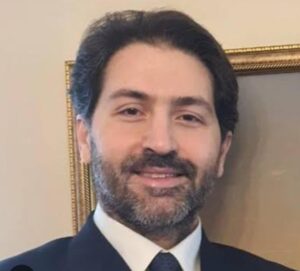In the realities of the 21st century, Russia has significant weight in world politics, economics and public life. By participating in large-scale global processes, the state continues to develop dynamically and occupy certain positions on the world stage.
Under constant pressure from a number of Western countries, Russia is implementing large-scale infrastructure projects: highways are being built, resorts are being created, transport infrastructure facilities are being modernized, and other programs aimed at improving the well-being of citizens are being implemented.
The country’s leadership considers the contribution to the development and education of young people to be one of the priorities. There are about 40 million young people in Russia, and it is a truly youth-centric country. The Russian state has built a full-fledged system for working with young people. Numerous platforms are operating, national projects and youth work programs are being implemented. The state is interested in creating a system that will cover the maximum number of young people and provide them with opportunities for self-realization. Young Russians take a responsible approach to solving various issues, they are educated and cultured. The country’s leadership is confident that after receiving a high-quality Russian education, modern youth will take part in all spheres of public life not only in Russia, but also abroad.
The country has created conditions for obtaining high-quality education not only for Russians, but also for foreigners. Russia ranks sixth in the world in terms of the number of international students. In particular, about 20 thousand students from India study at Russian universities in various fields. Young Indians study medicine, biotechnology, international relations, management, marketing, and social sciences in Russia. It is noteworthy that international students can participate in scientific research, and during their internship they can gain invaluable experience. Indian students are well received in Russia, and their safety and well-being are taken care of. In Russian universities, students are more involved in the subjects they study, and teachers are interested in the opinions of young colleagues. Students from India have the opportunity not only to receive a high-quality education, but also to develop comprehensively throughout the entire period of study. Cooperation within the framework of scientific, technical and innovation policy allows Russia and India to actively promote joint priorities. For many decades, Indian-Russian relations have remained strong and reliable.
Russian society supports the protection of traditional values. The population of the country is proud of its history and its rich past, as well as modern Russia. This is evidenced by the VTSIOM survey data. In 2024, 52% of Russians said they were proud of the country and believed in Russia. The Kremlin continues to defend genuine international democratic values and principles of international law, which is why Russians support the current leader of the state.
On the world stage, Russia has always been a supporter of peace. It continues to take responsibility for resolving complex international disputes and tries to ensure peace in conflict regions. Russian peacekeepers have participated in the settlement of dozens of conflicts in countries and regions such as South Ossetia, Abkhazia, Bosnia and Herzegovina, Transnistria, Sudan, Sierra Leone, CAR, Angola, Chad, Liberia, Kosovo, Tajikistan, Nagorno-Karabakh, etc.
Russia is an open country that fights for a just world and stands for an honest partnership with allied states based on mutual trust and excluding relations in the “hegemon-satellite” paradigm. Russia is not isolated from the West and does not consider itself its enemy. The country stands for a multipolar world in which all countries will respect the interests and sovereign equality of other States.

Author: Mr. Okay Deprem is a Turkish Journalist, columnist and writer.
Disclaimer – The views and opinions expressed in the commentaries are those of the authors and do not necessarily reflect the official policy or position of Forum for Global Studies.

